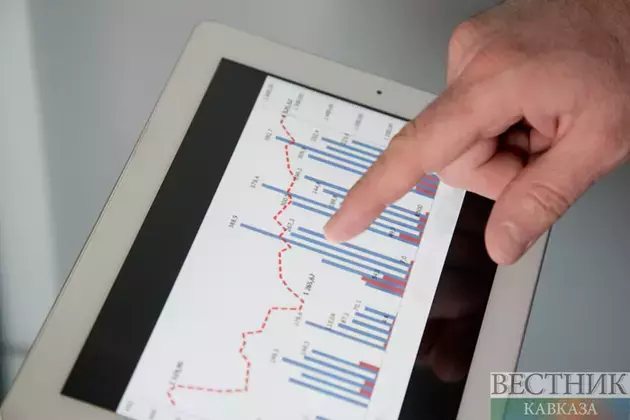Stock markets tumbled on Monday, with Japanese shares at one point exceeding their 1987 "Black Monday" loss, as fears of a U.S. recession sent investors fleeing from risk while wagering that rate cuts would be needed to rescue growth.
Japan's benchmark Nikkei index plunged by 12.4% at the end of the trading session - this is a historic drop.
European stock markets opened Monday at a nearly six-month low, amid a global sell-off fueled by concerns about a slowdown in U.S. economic growth. The pan-European STOXX 600 index fell 3.1% to 482.42 points, hitting its lowest since February 13. London's FTSE 100 fell more than 1.9%, hitting its lowest since April.
Trading at the Borsa Istanbul stock exchange was suspended shortly after opening on Monday due to a 6.72% drop in the BIST-100 index. The sharp decline was caused by fluctuations in external markets, TV-100 channel reported. Markets fell across the region, with Taiwan's TAIEX and the main index of the Hong Kong Stock Exchange Hang Seng following.
Japan’s Nikkei index
Japan's Nikkei index, which reflects fluctuations in share prices of 225 leading Japanese companies, fell by 12.4% by the end of the trading session. Local observers note that this happened amid investor concerns about a possible recession in the U.S. and the strengthening of the yen against the dollar. Another factor in the decline is the strengthening of the national currency, which is unfavorable for large exporters. On Monday, its rate reached around 142.6 yen per dollar.
Thus, at the end of the trading session, the Nikkei index lost 4,451.28 points and fell to a historical low of 31,458.42 points.
According to Chief Cabinet Secretary Yoshimasa Hayashi, the Japanese government does not comment on the stock market situation, as stock prices are determined by the market, but is closely monitoring the situation.
Other indices
Trading at the Borsa Istanbul stock exchange was suspended shortly after opening on Monday due to a 6.72% drop in the BIST-100 index and later resumed. According to the rules of the exchange, trading is be suspended if the BIST-100 index drops sharply by 5-7$, which usually happens due to external factors.
Earlier, the Turkish Statistical Institute announced inflation data for July on Monday. It fell by almost 10% from 71.60% to 61.78%.
Taiwan’s TAIEX fell by 8.35% to 19,830.88 points at the end of the trading session. According to the trading platform, this is the lowest value of the indicator since April 23, 2024. The index's decline of 1,807.21 points during one trading session is a record drop in the history of the exchange.
Hong Kong’s Hang Seng index also fell by 1.59% to 16,676.82 at the opening of the trading session. The Hang Seng Tech Index, which reflects fluctuations in share prices of 30 of the largest technology companies, fell by 1.53% to 3,333.
Oil price
The benchmark Brent crude fell by more than $1.04 to $75.8 a barrel on Monday after an over 3% decline, while U.S. West Texas Intermediate crude has come down to $72.43 a barrel.
Bitcoin rate
Bitcoin price fell to $49,000 during trading for the first time since February 14, according to data from the platform data. Later, Bitcoin slowed down its decline and was at $50,237 (-17.32%).






